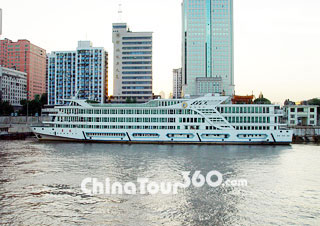 Yangtze Cruise
Yangtze Cruise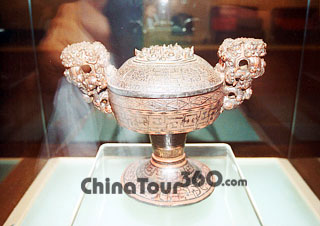 Hubei Provincial Museum
Hubei Provincial Museum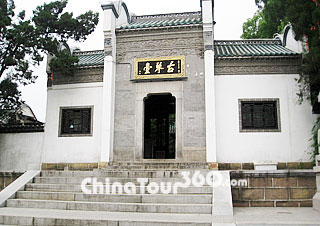 Wuhan Heptachord Terrace
Wuhan Heptachord Terrace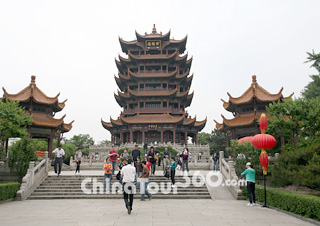 Yewllow Crane Tower
Yewllow Crane Tower
![]() Facts
Facts
Phone Code: 027
Postal Code: 430000-430400
Area: 8,494 square kilometers (3,279 square miles)
Population: 10.02 million (2011 data)
Neighboring Areas: Xiantao, Ezhou, Huangshi, Xianning, and Xiaogan cities
Location: Wuhan City located east of the Han River Plain. It is an important port at the middle and lower reaches of Yangtze River. Its longitude is between 113°41′-115°05′E, and the latitude lies between 29°58′-31°22′N.
Physical Features: Plains are the major geological form of the city, wich some low hills that are distributed in the central area. The Yangtze and Han rivers meet in Wuhan and divide it into three towns: Wuchang, Hankou, and Hanyang.
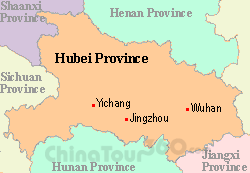 |
| Wuhan Map |
- Wuhan - Shanghai
- Shanghai - Wuhan
- Wuhan - Beijing
- Beijing - Wuhan
- Shenzhen - Wuhan
- Wuhan - Guangzhou
- Wuhan - Guilin
- Xian - Wuhan
- Guangzhou - Wuhan
- Wuhan - Yichang
- Yichang - Wuhan
- Shiyan - Wuhan
- Wuhan - Shenzhen
- Guilin - Wuhan
- Wuhan - Shiyan
- Wuhan - Nanjing
- Changsha - Wuhan
- Wuhan - Xian
- Zhengzhou - Wuhan
- Wuhan - Hefei
![]() Bus: State Highways 316 connecting Fuzhou and Lanzhou, 318 between Shanghai and Tibet, 106 from Beijing to Guangzhou, and 107 from Beijing to Shenzhen, plus 16 provincial roads meet here, so one can take buses from Wuhan to many cities and towns in China.
Bus: State Highways 316 connecting Fuzhou and Lanzhou, 318 between Shanghai and Tibet, 106 from Beijing to Guangzhou, and 107 from Beijing to Shenzhen, plus 16 provincial roads meet here, so one can take buses from Wuhan to many cities and towns in China.
![]() Intercity Bus: By 2011, there are 289 bus routes in the city, including 200 special lines that stretch to suburban areas, 5 night lines, and 6 tourist lines. Bus fares range slightly different according to the different types of bus: CNY 1 for regular buses, CNY 2 for air-conditioned buses, and CNY 1.5 for double-decker buses. Some buses running to the suburban areas charge by distance.
Intercity Bus: By 2011, there are 289 bus routes in the city, including 200 special lines that stretch to suburban areas, 5 night lines, and 6 tourist lines. Bus fares range slightly different according to the different types of bus: CNY 1 for regular buses, CNY 2 for air-conditioned buses, and CNY 1.5 for double-decker buses. Some buses running to the suburban areas charge by distance.
![]() Ferry: As Wuhan is a port city along the Yangtze River, ferries are also an important mode of transportation. There are five public ferry routes traveling among the three towns. It is also one of the terminals along the Yangtze River Cruise Tour. By taking a cruise ship one can reach either Chongqing in the upper reaches or Shanghai in the lower reaches.
Ferry: As Wuhan is a port city along the Yangtze River, ferries are also an important mode of transportation. There are five public ferry routes traveling among the three towns. It is also one of the terminals along the Yangtze River Cruise Tour. By taking a cruise ship one can reach either Chongqing in the upper reaches or Shanghai in the lower reaches.
![]() Subway: Wuhan Subway Line 1 was put into service in 2010. Line 1 runs in Hankou from Dongwu Avenue to Dijiao Station. Line 2, 3, and 4 are still under construction.
Subway: Wuhan Subway Line 1 was put into service in 2010. Line 1 runs in Hankou from Dongwu Avenue to Dijiao Station. Line 2, 3, and 4 are still under construction.
![]() Weather: Wuhan has a subtropical humid monsoon climate with plenty of rain and sunshine. Considered one of the four hottest cities in China (with Nanjing, Chongqing, and Nanchang), It has a very hot summer. Temperatures during this season are usually above 37°C (98.6°F), and sometimes can be above 40°C (104°F).
Weather: Wuhan has a subtropical humid monsoon climate with plenty of rain and sunshine. Considered one of the four hottest cities in China (with Nanjing, Chongqing, and Nanchang), It has a very hot summer. Temperatures during this season are usually above 37°C (98.6°F), and sometimes can be above 40°C (104°F).
![]() Dining and Shopping
Dining and Shopping
In Wuhan, locals know that one can have breakfast in Hubuxiang Lane and enjoy dinner in Jiqing Street. In Hubuxiang Lane, there are traditional food for breakfast, such as Hot Noodles with Sesame Paste (Re Gan Mian), Rice Noodles in Flavored Thick Paste Soup (Hu Tang Fen), and Salty-Crispy Doughnut (Mian Wo). At night, you can also enjoy all kinds of local food on Jiqing Street. Residents like to eat fish, especially Wuchang Fish. Liangzi Lake River Crab is also very popular.
Shopping centers are distributed on Zhongshan Avenue, Aviation Road, Hanjiang Road, Hanzheng Road, Si Men Kou, Zhongnan Road, and Zhongjia Village. Famous shopping centers are: Wuhan International Plaza, Wuhan Square, International Trade Square, and Hanjiang Road Pedestrian Street.







